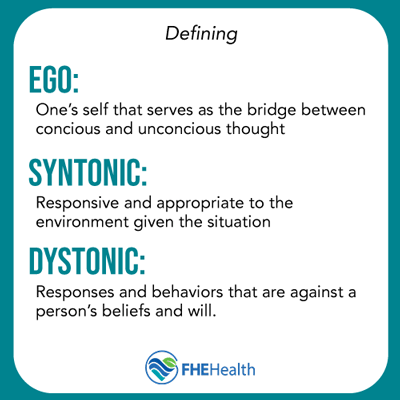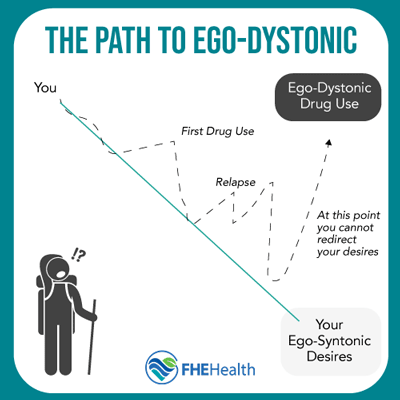
Updated January 24, 2025
Addiction is a complex disease that impacts all aspects of your life. It affects you physically, emotionally, spiritually and psychologically, causing you to change how you think, feel and act.
When you’re struggling with addiction to a particular substance like heroin, alcohol, opiates, or a combination of different drugs, chances are good that your addiction likely seemed to be safe and nondestructive at first. After all, those few drinks after work or that extra dose of hydromorphone may have given you the relief you needed after a stressful day at the office or helped you deal with yet another conflict with your kids or spouse.
It’s only over time that your behavior changed to the point where your pursuit of alcohol and drugs started to feel uncomfortable for you, leaving you with a sense of guilt, failure, and anxiety. You knew that the amount of energy, time and money you were pouring into the pursuit of your next “fix” was having a negative impact on your life, yet you found yourself unable to change your behavior on your own.
This shift from engaging in behaviors that fit with your personal values, beliefs, and goals towards acting in a way that felt uncomfortable and conflicted with how you saw yourself is a common experience among people who struggle with addictions. In psychological terms, this shift is referred to as moving from eco-syntonic behaviors to ego-dystonic behaviors.
What Are Ego-Syntonic Behaviors?
 In psychotherapy, the term “ego” refers to one’s self, namely, the part of a person’s mind that serves as a virtual bridge between conscious and unconscious thoughts. It’s a sort of invisible safety mechanism that helps people control their behavior in a way consistent with what they believe in, their personal value system and their future goals and ambitions.
In psychotherapy, the term “ego” refers to one’s self, namely, the part of a person’s mind that serves as a virtual bridge between conscious and unconscious thoughts. It’s a sort of invisible safety mechanism that helps people control their behavior in a way consistent with what they believe in, their personal value system and their future goals and ambitions.
It’s the ego that helps people resist the urge to engage in behaviors that could be in conflict with how a person thinks or feels. This internal control is what helps you “do the right thing,” especially in situations where it can be tempting to take actions that go against your personal values. Some refer to the ego as the internal voice of reason — it’s what helps motivate you to ensure your behavior is congruent with how you see yourself.
Ego-syntonic behaviors are behaviors that are aligned with your values and self-image. If you’re a dedicated athlete, working out daily could be considered an ego-syntonic behavior because it aligns with your goals and how you perceive yourself.
What are Ego-Dystonic Behaviors?
 While ego-syntonic behaviors are actions that align with your personal goals, values, and beliefs, as you might expect, ego-dystonic behaviors are actions that are inconsistent with your ego. These behaviors tend to gradually develop over time, and it can take days, weeks or even years to shift your actions from being congruent with your ego to being largely in conflict with how you see yourself.
While ego-syntonic behaviors are actions that align with your personal goals, values, and beliefs, as you might expect, ego-dystonic behaviors are actions that are inconsistent with your ego. These behaviors tend to gradually develop over time, and it can take days, weeks or even years to shift your actions from being congruent with your ego to being largely in conflict with how you see yourself.
On the extreme end of the spectrum, a person who is suffering from obsessive-compulsive disorder (OCD) engages in a number of behaviors that are ego-dystonic — they feel powerless to control actions they know are unhealthy and interfering with their life.
With regards to substance abuse, ego-dystonic behaviors can include stealing money to buy drugs, lying to a physician in order to get a prescription for painkillers and engaging in actions that simply don’t fit with your values and beliefs.
The Cycle of Ego-Dystonic Behavior in Addiction
Not only do ego-dystonic behaviors feel uncomfortable, but the guilt and shame associated with acting in ways that conflict with your ego tends to create a vicious cycle of addictive behaviors. You start engaging in ego-dystonic behaviors in order to enjoy the satisfaction, relief, and gratification you get from “scratching your itch.” But shortly afterward, you’re overcome with a sense of failure and internal conflict.
To relieve those negative feelings, you once again engage in behaviors that are ego-dystonic to find relief from the intense tension you are experiencing, and in the process, the addiction cycle continues.






